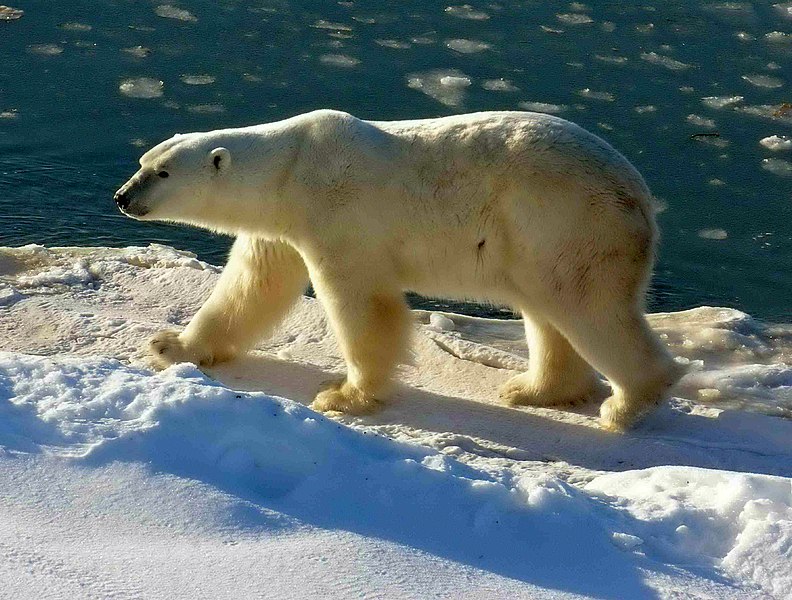
WaPo: At the Poles, Melting Occurring at Alarming Rate
For scientists, global warming is a disaster movie, its opening scenes set at the poles of Earth. The epic already has started. And it's not fiction.
The scenes are playing, at the start, in slow motion: The relentless grip of the Arctic Ocean that defied man for centuries is melting away. The sea ice reaches only half as far as it did 50 years ago. In the summer of 2006, it shrank to a record low; this summer the ice pulled back even more, by an area nearly the size of Alaska. Where explorer Robert Peary just 102 years ago saw "a great white disk stretching away apparently infinitely" from Ellesmere Island, there is often nothing now but open water. Glaciers race into the sea from the island of Greenland, beginning an inevitable rise in the oceans.
Animals are on the move. Polar bears, kings of the Arctic, now search for ice on which to hunt and bear young. Seals, walrus and fish adapted to the cold are retreating north. New species -- salmon, crabs, even crows -- are coming from the south. The Inuit, who have lived on the frozen land for millennia, are seeing their houses sink into once-frozen mud, and their hunting trails on the ice are pocked with sinkholes.
"It affects everyone," said Carin Ashjian, a Woods Hole Oceanographic Institute scientist who spent early September with native Inupiats in Barrow, the northernmost town of Alaska. "The only ice I saw this year was in my cup at the cafeteria."
At the South Pole, ancient ice shelves have abruptly crumbled. The air over the western Antarctic peninsula has warmed by nearly 6 degrees since 1950. The sea there is heating as well, further melting edges of the ice cap. Green grass and beech trees are taking root on the ice fringes.
Antarctica's signature Adelie penguins are moving inland, seeking the cold of their ancestors, replaced by chinstrap and Gentoo penguins, which prefer open water. Krill, the massive smorgasbord for a food chain reaching to the whales, are disappearing from traditional spawning grounds.






No comments:
Post a Comment